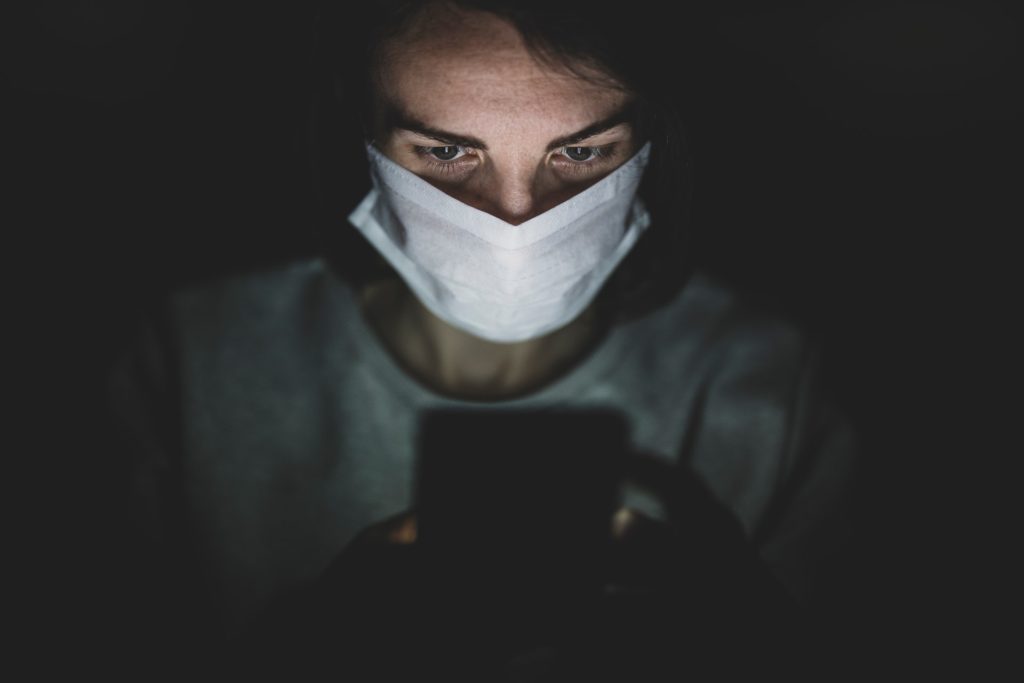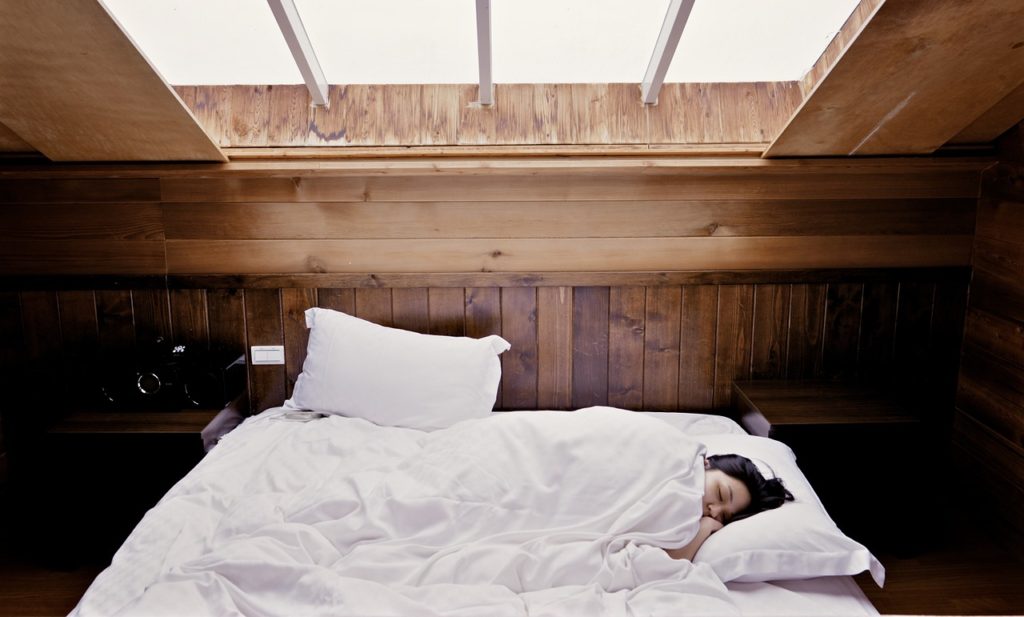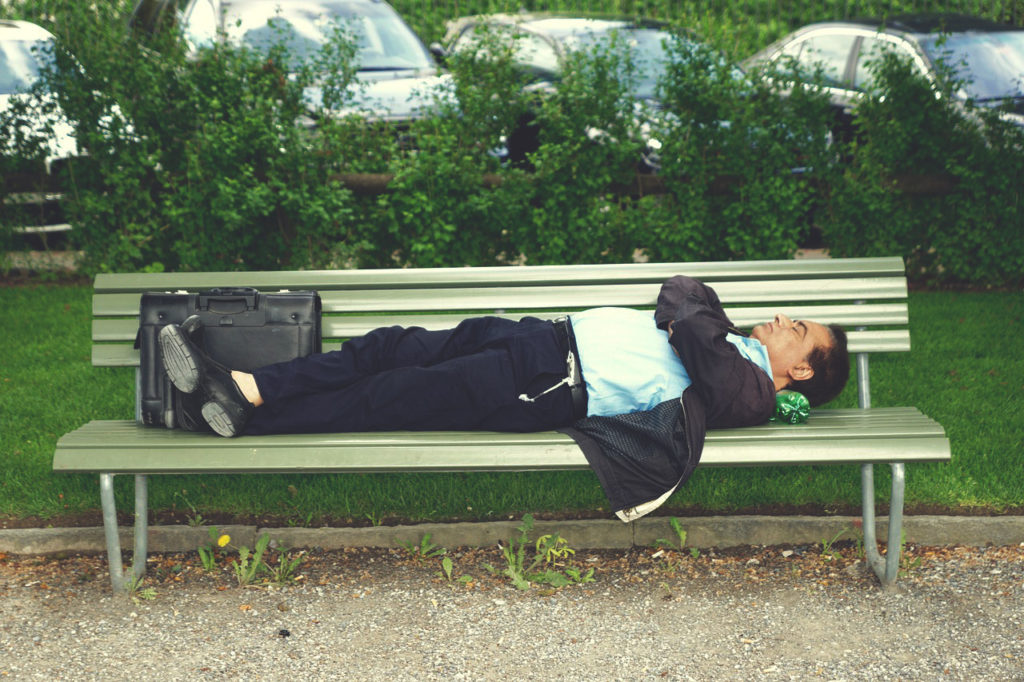As the dozens of emails in our inbox from every single company we’ve ever interacted with keep reminding us, these are unprecedented/uncertain/trying times. Seriously though, we are living through a global pandemic – an enduring worldwide crisis and natural disaster – and everything about what normal life used to look like has been upended. We’re simultaneously going through this together, yet isolated as we shelter in place, and each of us are experiencing unique challenges as we make the best of the cards we have been dealt. Perhaps you may benefit from taking a moment right now to give yourself patience and grace, to be okay with operating in survival mode, and to compassionately reorient yourself to self-care.
Naturally, I want to talk about self-care in the form of sleep.
Two main features of our shared experience during these times seem to be: 1) heightened stress/anxiety (about the virus, about loved ones getting sick, about economic impacts) and 2) a disruption to our normal routines (work, daily schedules, family life, recreation). Both increased stress/anxiety and disrupted routine can trigger acute, or short-term, problems with sleep, regardless of whether you have a history of sleep problems. Indeed, #cantsleep has been trending worldwide,1 and I’ve been hearing from my clients, coworkers, and friends that their sleep has taken a nose-dive recently.
Unfortunately, this comes at a time when getting good sleep is especially important for our health and well-being. Particularly relevant, sleep is linked to boosting the immune system, which reduces the risk of infection and helps to fight sickness more effectively. Also, sleep helps to better regulate mood and mental health – critical during this time when we are socially isolated, more stressed, and less able to engage in our normal coping activities. I want to encourage you to approach your sleep as an essential form of self-care to help you through these times.
1. Maintain a consistent sleep/wake schedule
This is probably the most important recommendation, but also probably the one you’ve heard the most, making you likely to tune out. Hear me out: this is a critical part of training the circadian rhythm, which is your internal 24-hour clock, to better regulate the timing of your sleep/wake cycles. You’ll want to generally stick to a consistent bedtime and wake-up time, even on the weekends. You don’t necessarily need to be overly strict or rigid about the exact times (unless you’re trying to do sleep training), but try to decrease any large variance on your bedtimes and wake-up times as best as you can.
If you are newly working from home, you might have found that your bedtime and wake-up time have gotten shifted or even completely thrown off. This is normal and to be expected, but we want to prevent this disruption from self-perpetuating into a cycle of longer term sleep problems. Even if your work schedule hasn’t been disrupted, I can bet your evening routines have been significantly altered during this shut-in life: binge-watching the latest Netflix series or working on your newest hobby, like sewing face masks or feeding your sourdough starters.
Be intentional about creating consistent routines throughout your day and evenings. Protect your sleep window at night, and stick to a consistent wake-up time.
2. Maximize light exposure in the mornings
Our circadian rhythms are wired to stay synchronized with the external day/night cycle, primarily by seeking information from light exposure. Generally, you want to get lots of light in the mornings during the first few hours after you wake up, and conversely, minimize light exposure in the evenings, during the last few hours before bed.
Lockdown/quarantine restrictions have likely altered the light exposure you are getting – maybe by no longer having a morning commute, or in general by spending so much more time indoors. Try to schedule daily outdoor time, like a walk or a jog, ideally in the mornings. Throw open the curtains and blinds in the mornings and get as much natural light as possible.
3. Minimize light exposure in the evenings
I’ve written about this previously and am constantly emphasizing this point with my clients, but it has become even more salient during these times. Getting too much light in the evenings will essentially trick your circadian system into thinking that daylight has been extended, and it actually causes a delay in the release of melatonin (which is a darkness signaling hormone). This can cause insomnia symptoms, grogginess in the mornings, and throw off the circadian rhythm. In our modern society, this is a big problem because we are surrounded by artificial light that can extend the day indefinitely, as well as all of our backlit screens (which emit “blue” light that is especially disruptive to the circadian system at night) – how many backlit screens are just in the room you’re sitting in right now?
Our coronavirus-era lifestyle, restricted by lockdown and social distancing, has hypercharged this problem even more. While our backlit screens have been a valuable tool enabling telework and connectedness (remote desktops, Zoom meetings, virtual happy hours, FaceTime with loved ones), there’s no denying that we have become insanely dependent upon screen-time for so much of our daily tasks – distance learning, shopping, ordering food, Netflix shows, social media, and endless coronavirus news. The downside is, of course, the potential impact to your sleep and circadian rhythm, among other things.
In general, try to reduce the amount of light coming from all sources in your home environment during the evenings. And if you are using screens at night, make sure the brightness is turned down, and also try to active the device’s blue light filter setting (Night Shift mode on Apple devices). And be sure to set an electronics curfew of at least 30 minutes (if not 1 hour or longer) before your bed.
4. Limit news and media consumption
Speaking of endless coronavirus news… because of the uncertainty and helplessness we feel, it can be tempting to get sucked into the internet void of coronavirus news and research – obsessively refreshing the latest case numbers, researching the newest symptoms emerging, reading firsthand accounts from frontline workers. However, continuously feeding the anxiety and fear with this kind of exposure can obviously be harmful to your mental health.
Staying well-informed during a health crisis is definitely important. But drinking from the firehose of pandemic information is probably not helpful, especially right before you get into bed. Same goes for social media, which can be a time-suck or worse, a toxic environment counterproductive to winding down before bed. Set limits on the kinds of news and media consumption you’ll engage in in the evenings. Avoid the kinds of things that tend to increase stress and anxiety.
5. Wind down before bed, physically and mentally
Instead, you’ll want to establish a wind-down routine that is physically and mentally relaxing before bed, and consistently practice it. Our bodies need to be in a state of relaxation in order to initiate sleep. This is especially important if your routines have gotten thrown off during this time, or if you’re experiencing heightened anxiety, or if you’re starting to struggle with sleep problems. Set aside 30-60 minutes before bed and engage in activities that promote relaxation, both physically and mentally.
This will look differently for everyone. You don’t need to get fancy with it, just come up with a wind-down routine that’s good for you. Here are some things you can try: light reading, gentle yoga, stretching or audiobooks/podcast (no screen time). If you want to bring in the big guns in this area, these three techniques have a lot of solid research behind them and are worth looking into: 1) controlled breathing exercises, 2) progressive muscle relaxation, and 3) mindfulness meditations. Experiment a bit with what helps you to get into that relaxed state before bed, and then consistently practice it so that you strengthen the connection between this bedtime routine and falling asleep easily.
Last few tips…
Here are a few more items I’d like to mention briefly.
- Stay physically active. With gyms closed and people stuck at home, this can be challenging. Regular exercise is linked with improved sleep and decreased insomnia symptoms. And if you’re trying to “tire yourself out” with exercise, you’re doing it wrong – simply try to elevate your heart rate each day.
- Optimize your sleep environment. Make sure your bedroom is conducive for sleep: a cool, quiet, and dark setting. You might try blackout curtains, an eye mask, a fan, white noise machine, or relaxing sounds app. If you’re working from home, make your work space somewhere that isn’t your bedroom.
- Don’t use alcohol as a sleep aid. Alcohol consumption is reportedly way up during this time, as people self-medicate for anxiety and to help them sleep. Unfortunately for sleep, while alcohol does help fall asleep faster, it ends up leading to shallower and more fragmented sleep, ie worse quality of sleep.
- Avoid napping if you have sleep problems. Napping is also probably on the rise with people stuck at home, and while naps aren’t inherently bad, they can be detrimental to people struggling with nighttime sleep issues. If you do need to nap, try a power nap (20-30 min) earlier in the day (before 2-3 pm).
Because sleep is more easily disrupted during these times while at the same time being even more important to our physical and mental health, it is critical that we be intentional about protecting this essential form of self-care. Final note: This list is not necessarily a complete “sleep hygiene” list or representative of comprehensive behavioral insomnia therapy. Please seek help from your local medical providers if you are significantly concerned about worsening sleep.
For more reading on sleep in the age of coronavirus, I recommend these articles:
- University of Chicago Medicine: Why it’s important to get a good…
- New York Times: How to get more sleep tonight
- Sleep Foundation: Sleep guidelines during the COVID-19 pandemic
- Not to get too side-tracked here, but there has also reportedly been a huge uptick in weird and vivid dreams, aka lockdown/quarantine dreams. I’ve personally noticed having more vivid and anxiety-related dreams as well. There have been a lot of articles written about what’s going on (here’s a good write up), but what makes most sense to me is the combination of increased stress/anxiety plus more waking up during REM sleep due to working-from-home/sleeping in.


